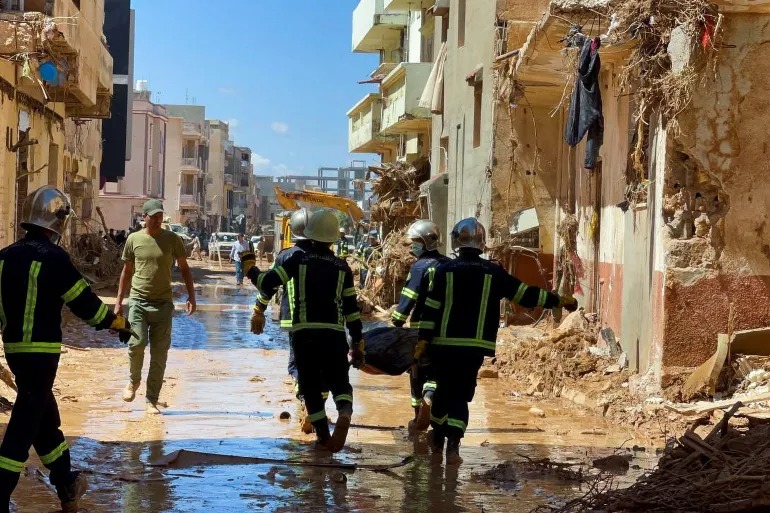In the wake of a devastating natural disaster that has left Libya reeling, rival governments are setting aside their differences to come to the aid of the flood victims. The catastrophe struck the eastern port city of Derna, turning it into a scene of utter devastation. Storm Daniel’s relentless onslaught, which began unexpectedly in the dead of night, burst dams and unleashed devastating floods, catching the city’s residents off guard. Usama al-Husadi, a heartbroken 52-year-old driver, tirelessly searches for his missing wife and five children amidst the ruins. Tragically, he is not alone, as many have lost dozens of relatives in this calamity.
Domestic Unity Amidst Chaos
Amidst the political turmoil that has plagued Libya for years, domestic efforts to aid survivors have gained momentum. Despite the deep political divisions that have plagued the country since the fall of Muammar Gaddafi in 2011, a ministerial delegation left Tripoli to assess the damage in Derna and nearby cities hit by the disaster. Analysts suggest that this catastrophe may have the unexpected consequence of uniting rival politicians who have long been at odds.
International Assistance on the Rise
On the international front, a global effort to assist Libya’s numerous victims is rapidly gaining momentum. Turkey, Italy, Algeria, Egypt, France, Iran, Jordan, Kuwait, Qatar, the UAE, the United Kingdom, the United States, the United Nations, and the European Union have all stepped up their efforts, providing everything from military support to medical aid. A Turkish ship carrying medical equipment and personnel has departed for Libya, while Italy is set to dispatch a naval vessel for logistical and medical support. This collaborative international response reflects the urgency of the situation.
Derna’s Unfathomable Loss
Derna, the hardest-hit city, now stands as a testament to the disaster’s scale. Mayor Abdulmenam al-Ghaithi estimates that the death toll in the city could reach a staggering 18,000 to 20,000. The horrors are compounded by the smell and warmth of the bodies trapped beneath the rubble. More than 70 of the city’s victims were migrant workers from a single Egyptian village, al-Sharif, whose tragic loss was mourned by hundreds during a mass funeral. Meanwhile, the risk of water-borne diseases looms large, further compounding the crisis.
The storm also wreaked havoc on other areas in eastern Libya, including Bayda, Sousa, and Marj, where rescuers are grappling with the grim task of retrieving the bodies of the deceased. The death toll in Bayda alone has climbed to about 200, marking another heart-wrenching chapter in this ongoing tragedy.
As the misery piles on in Libya, the cooperative efforts of domestic and international actors offer a glimmer of hope amidst the darkness. The world watches as rival governments set aside their differences, united by a shared determination to alleviate the suffering of the flood-ravaged nation.















